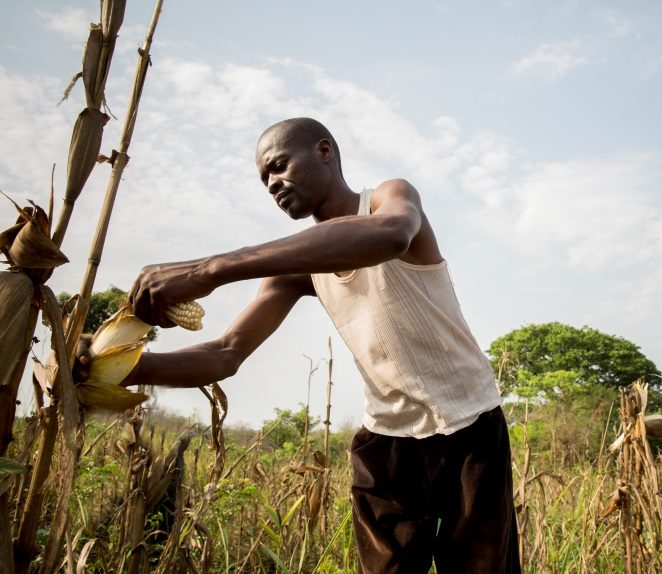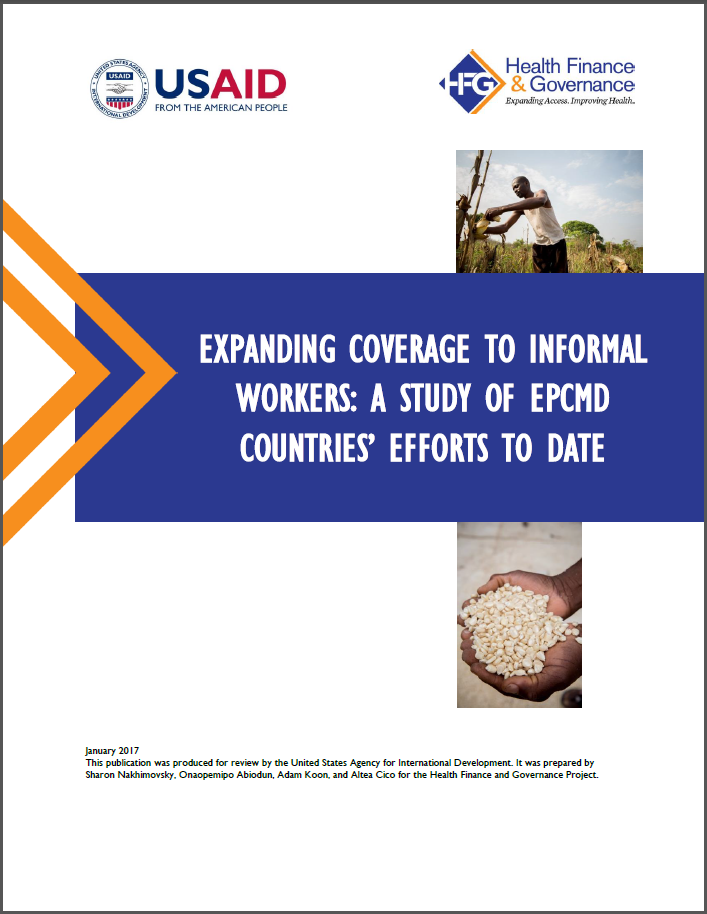New Study: Expanding Coverage of Health Services to Informal Workers
F or many low- and middle-income countries (LMICs), expanding health coverage to informal workers is one of the most common, yet complex challenges they face. Informal workers are, by definition, not provided with legal or social protections through their employment, and are vulnerable to health and economic shocks. They also account for a large percentage of the population in LMICs. Expanding or deepening health coverage to informal workers is key for achieving universal health coverage (UHC).
or many low- and middle-income countries (LMICs), expanding health coverage to informal workers is one of the most common, yet complex challenges they face. Informal workers are, by definition, not provided with legal or social protections through their employment, and are vulnerable to health and economic shocks. They also account for a large percentage of the population in LMICs. Expanding or deepening health coverage to informal workers is key for achieving universal health coverage (UHC).
Expanding Coverage to Informal Workers: A Study of EPCMD Countries’ Efforts to Date complements existing literature on how health reforms can improve the welfare of informal workers. The report focuses on the 25 countries prioritized by the United States Agency for International Development (USAID) for development assistance as part of its Ending Preventable Child and Maternal Deaths (EPCMD) initiative.
 Given the strong interest in the question of expanding coverage to informal workers among EPCMD countries, HFG conducted this research for USAID to provide recommendations relevant to UHC policy discussions in these countries. Specifically, HFG compiled data and conducted key informant interviews in EPCMD countries to:
Given the strong interest in the question of expanding coverage to informal workers among EPCMD countries, HFG conducted this research for USAID to provide recommendations relevant to UHC policy discussions in these countries. Specifically, HFG compiled data and conducted key informant interviews in EPCMD countries to:
- Understand the size and characteristics of informal employment in these countries;
- Identify the main approaches that governments in 10 sample countries have taken to expand coverage to informal workers; and
- Understand the implementation challenges these governments have faced and how they have responded to them.
Findings showed that informal workers account for more than 70 percent of the labor force in the 16 of the 25 countries that had complete data—more than the average in other LMICs and high-income countries. Key informants indicated that, while there is no silver bullet for addressing the challenges of expanding coverage, governments are exploring ways to improve identification, enrollment, and collection of beneficiary contributions for demand-side schemes, and addressing supply constraints informal workers face in gaining access to needed, quality services.



